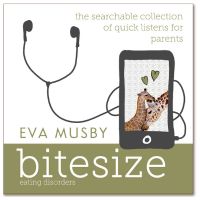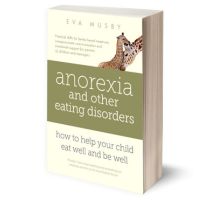Temperament-Based Therapy with Supports (TBT-S)
Temperament-Based Therapy with Supports (TBT-S), addresses eating disorders for any age. For children and adolescents, where the first line treatment is a Family-Based approach, TBT-S is a welcome, compatible adjunct.
TBT-S therapists help the person's 'Supports'– that's support people (parents, friends, etc) to be genuinely supportive.
That means really understanding each others' needs and strengths. The stance seems to be genuinely respectful and empowering of all those involved.
TBT-S draws on the strengths of both temperament and supportive relationships
The methods are mostly experiential — less talking, more doing. Games bring insight to the person and their 'Supports': how does my brain function? What would help me work with my strengths?
Everyone gains a better understanding of how thoughts, emotions and behaviours are shaped by both the illness and a person's temperament. Temperament can work both for and against recovery. The method brings out how to best use everyone's strengths.
I am well impressed by the humanity and respect that shines through webinars given by Laura Hill, one of the developers of the approach.
There's a strong commitment to understanding each other. To steering clear of blaming or shaming any party.
That's precious, when we know how a person with an eating disorder can feel pretty down on themselves. And how, as a support person, we keep realising that we've done some counterproductive things in the past.
For me, it's refreshing to see how TBT-S genuinely values the support of family and friends. I'm used to seeing some lip service to the involvement of 'loved ones' in adult treatment: often, blame comes through behind a supposedly neutral message that a parent is 'enabling' the illness, or that a person with an eating disorder won't progress until they take responsibility for their recovery.
TBT-S can be an adjunct to a family-based treatment for adolescents. Stephanie Knatz Peck, the co-developer of TBT-S, has a variant for children and adolescents.
In young people, how it complements family-based treatment
In a family-based approach, whether it's called FBT or FT-AN, it's crucial for parents to have a stance that's both compassionate and firm.
We're not always told how to do that — and that's what my book and my Bitesize audio collection aim to do. So I'm glad that parents can experience, through a TBT-S workshop, how to be truly supportive — both compassionate and active.
And… the young person gets to be seen: they're heard, they feel understood, they can express what will help or hinder, they can see how their parents love them and can come to agreements. Being seen as a person is something which family-based treatment isn't strong on, at least in a first phase: the young person can feel the treatment is done to them. That's OK if it means they're freed from the illness sooner, but I welcome anything that can keep the strengths of FBT while adding in more connection and mutual understanding.
Where to find TBT-S
Terra Towne runs a 5-day program in California with Stephanie Knatz Peck. I've had detailed feedback about it from a delighted mother, and I am very impressed.
In Victoria, Australia, the Victorian Government's Centre for Excellence in Eating Disorders offers TBT-S through the Victorian public health system (including the child and adolescent health services). Details here.
TBT-S programs may be available to you, increasingly, as practitioners are getting trained. For now, there's some in the US, Australia, Norway & Greece.
Learn more about TBT-S
To learn more about TBT-S, or to find a practitioner, see the TBT-S training institute or see the Australia and New Zealand site here.
There's information also on one of the Washington state practitioners' websites, Krista Crotty.
Also a good write up from Laura Hill on FEAST.
A very basic (overly simplistic?) interview on this podcast.
An internet search may bring up videos from conferences.
A book by the developers of TBT-S
Temperament Based Therapy with Support for Anorexia Nervosa (TBT-S) – a novel treatment by Laura Hill, Stephanie Knatz Peck, and Christina Wierenga
This book describes TBT-S treatment in detail. Parents, it will give you more understanding and it will inspire you. Clinicians, you will see how to make great use of family, friends, and any other possible support person.
This is a real game-changer for treatment of 18+ people with anorexia. Right now there's far too much of expecting them to recover through willpower, 'taking ownership of their recovery' and other concepts that ignore the anosognosia element of the illness.
More on this book here.
Is TBT-S an evidence-based therapy?
I'm not sure about the level of research conducted by the developers of TBT-S. I think the claim that it's 'evidence-based' might come from the principles it rests on, rather than on any major randomized controlled trials.
Personally I'm spreading the word about TBT-S because the principles make sense to me, and I hear from people who've found it very useful. That's not much to go on, so please follow the links I provide and do your own research. Perhaps there'll have been some big studies by the time you read this.
As I write this in 2025, the UK's NICE guidelines for the treatment of eating disorders don't mention TBT-S — the treatments recommended for adults don't genuinely mobilise the power of family support. In other countries too: if you don't see TBT-S on official recommendations, it could be that statisticians have decided there's not enough good quality research, or that the research isn't showing convincingly that the methods works, or it could simply be that the method is too recent for it to have been included in reviews.
There is one country where TBT-S features in recommendations for eating disorder treatment: Australia. As previously noted, it's provided through the Victorian Government's Centre for Excellence in Eating Disorders.
Onwards
* Start here: find the information you need NOW *
* Adults or young adults: treatment for a restrictive eating disorder *
* Family therapy for eating disorders: what is FBT / Maudsley/FT-AN? *
* FAQs: how to help your son or daughter recover from anorexia and other eating disorders *







LEAVE A COMMENT (parents, use a nickname)